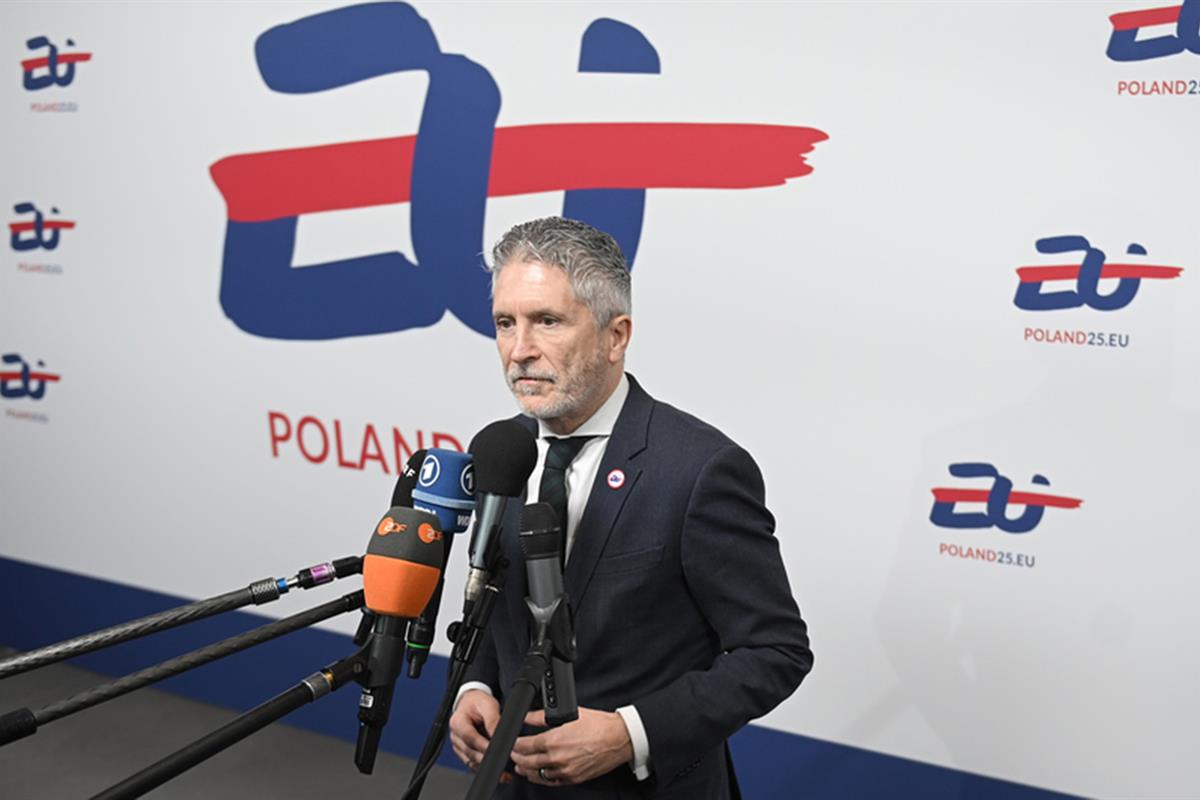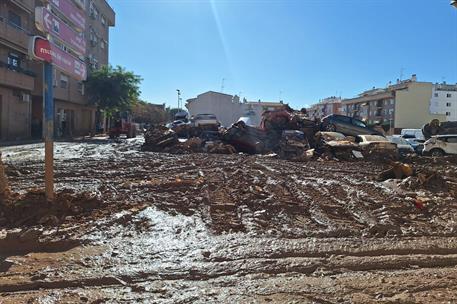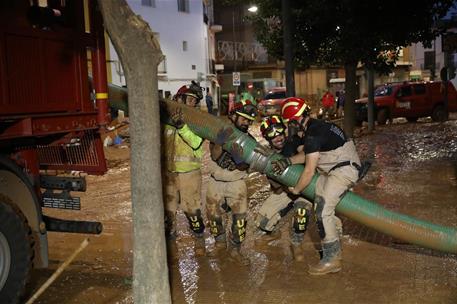Grande-Marlaska: "Climate crises are now a reality that requires coordinated, effective and supportive responses"
News - 2025.1.30
 The Minister for Home Affairs, Fernando Grande-Marlaska, at the Informal Meeting of Home Affairs Ministers, held in Warsaw
The Minister for Home Affairs, Fernando Grande-Marlaska, at the Informal Meeting of Home Affairs Ministers, held in Warsaw
The Minister for Home Affairs, Fernando Grande-Marlaska, has defended in Warsaw the need to articulate "coordinated, effective and supportive responses" to climate crises, "which are not a future threat, but a reality that is already affecting Europe", he said, specifically recalling the DANA that hit Spain on 29 October, with a particular impact on the province of Valencia.
Grande-Marlaska urged his European counterparts to consider the impact of climate change as a "central axis of the civil and military preparedness strategies" of the EU27, a planning that is the subject of analysis in the EU and which occupied part of the debate at the Informal Meeting of EU Ministers held on Thursday in the Polish capital.
During his speech, the minister praised the European Commission's efforts to design a common European strategy to deal with major crises, which is based on the conclusions of the report drawn up on this matter by the former Finnish president, Sauli Niinistö, and which was analysed at the meeting.
Grande-Marlaska encouraged the EU to promote the involvement of civil society and public-private cooperation and to foster "a culture of anticipation and resilience" at all levels, "involving all social and economic actors in the planning and response phases".
On the same subject, the minister held a meeting with the new Commissioner for Crisis Preparedness, Crisis Management and Equality, Hadja Lahbib, to whom he reiterated Spain's gratitude for the solidarity and support shown by the European Commission following the flooding caused by the DANA in October.
Grande-Marlaska reaffirmed Spain's commitment to the drafting and support of the new EU Preparedness Strategy, also conveying the need to allocate specific European funds to strengthen critical infrastructures in the face of natural disasters, cyber-attacks and other types of threats.
Migration and security policies in the EU
In terms of migration policy, the Minister for Home Affairs identified the implementation of the Pact on Migration and Asylum as the main priority, which will demonstrate "its effectiveness" and "the importance of agreement and dialogue, after years of disagreements". In the same area, he stressed the urgency of promoting measures to do with the "external dimension" of migration.
"The history and long experience of cooperation with third countries on migration issues shows us that it is not a question of changing the model, but of better implementing and deepening partnerships with third countries," he stressed to his EU counterparts. Along these lines, he called for "sufficient budgetary muscle" to provide "more material aid and training" to the forces of third countries in charge of preventing irregular departures and readmitting returnees.
In the debate on the EU's internal security, Grande-Marlaska stressed the need to strengthen its digital dimension. "We must position the EU as a leader in the use of technology to ensure security against threats such as encrypted communication, artificial intelligence, the use of biometric data, drones, online crowdfunding and the use of crypto-assets.
Non official translation






